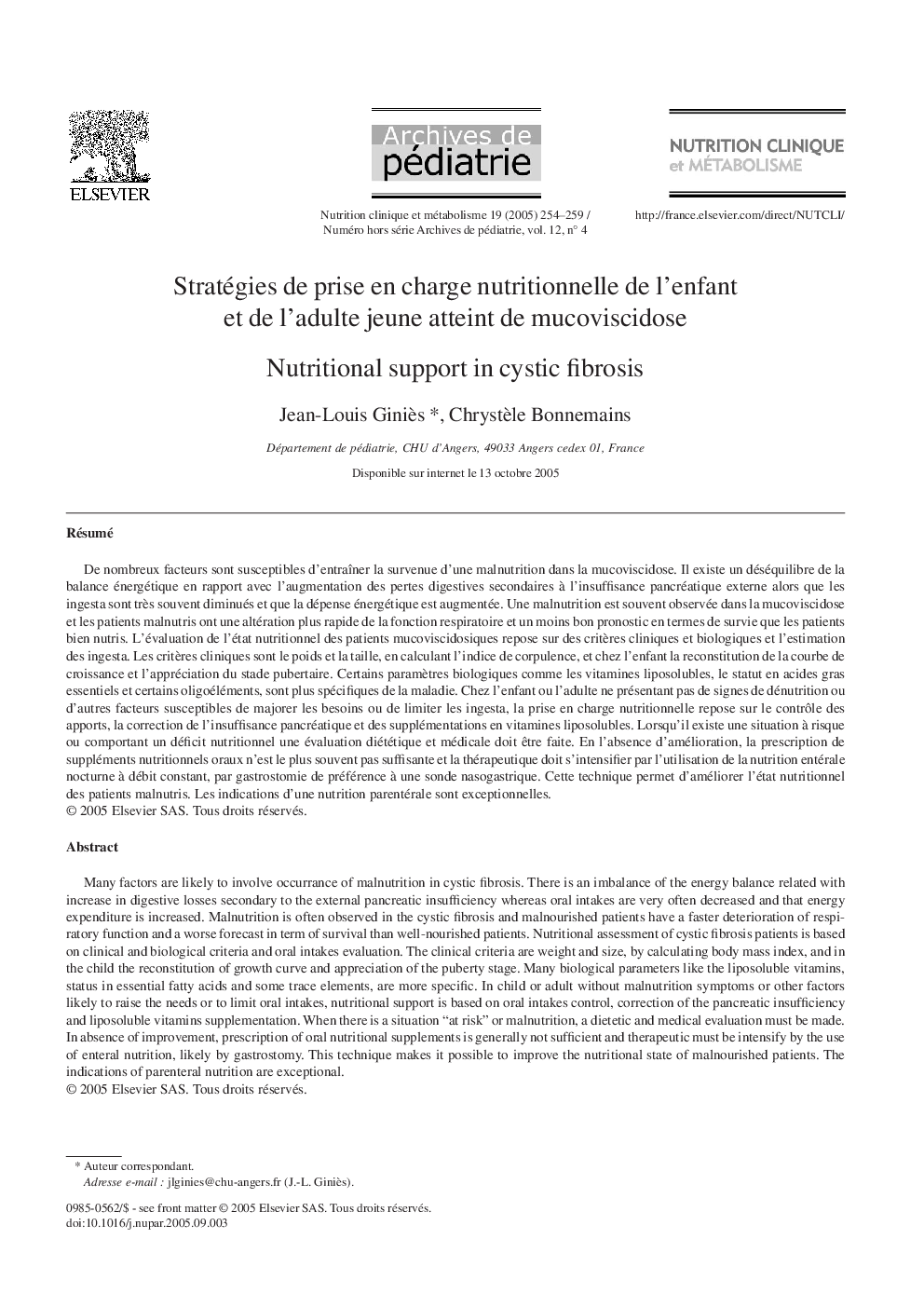| Article ID | Journal | Published Year | Pages | File Type |
|---|---|---|---|---|
| 9074477 | Nutrition Clinique et Métabolisme | 2005 | 6 Pages |
Abstract
Many factors are likely to involve occurrance of malnutrition in cystic fibrosis. There is an imbalance of the energy balance related with increase in digestive losses secondary to the external pancreatic insufficiency whereas oral intakes are very often decreased and that energy expenditure is increased. Malnutrition is often observed in the cystic fibrosis and malnourished patients have a faster deterioration of respiratory function and a worse forecast in term of survival than well-nourished patients. Nutritional assessment of cystic fibrosis patients is based on clinical and biological criteria and oral intakes evaluation. The clinical criteria are weight and size, by calculating body mass index, and in the child the reconstitution of growth curve and appreciation of the puberty stage. Many biological parameters like the liposoluble vitamins, status in essential fatty acids and some trace elements, are more specific. In child or adult without malnutrition symptoms or other factors likely to raise the needs or to limit oral intakes, nutritional support is based on oral intakes control, correction of the pancreatic insufficiency and liposoluble vitamins supplementation. When there is a situation “at risk” or malnutrition, a dietetic and medical evaluation must be made. In absence of improvement, prescription of oral nutritional supplements is generally not sufficient and therapeutic must be intensify by the use of enteral nutrition, likely by gastrostomy. This technique makes it possible to improve the nutritional state of malnourished patients. The indications of parenteral nutrition are exceptional.
Keywords
Related Topics
Health Sciences
Medicine and Dentistry
Gastroenterology
Authors
Jean-Louis Giniès, Chrystèle Bonnemains,
